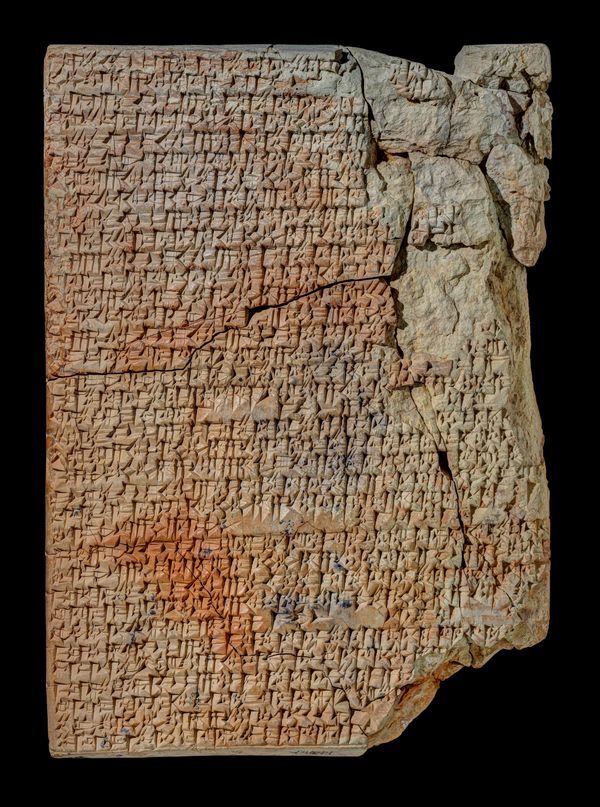Part of the problem with reproducing these ancient recipes is that the tablets are mostly ingredient lists, typically sans further instructions. Presumably, the person writing them assumed that the reader would have sufficient culinary know-how to parse the shorthand. For a modern-day scientist, filling in the blanks requires some serious guesswork.
A vegetarian stew—inexplicably titled on a tablet as “Unwinding”—and a braised lamb stew with beets both turned out surprisingly well. The latter recipe incorporates both sour beer and tallow, both of which were commonly used ingredients at the time.
Babylonian Lamb Stew
Adapted from the Yale Peabody Museum
Prep time: 30 minutes
Cook time: 90 minutes
Total time: 120 minutes
4 servings
Ingredients
-
1/2 cup of chopped leek
-
2 cloves of garlic
-
1 pound of diced leg of mutton or lamb
-
1/2 teaspoon salt, or to taste
-
1 small onion, diced
-
1 teaspoon of ground cumin
-
1 cup of Persian shallots or spring onions, finely chopped
-
1 pound of fresh red beets, peeled and diced
-
1 cup of chopped arugula
-
1/2 cup of chopped fresh cilantro
-
1 cup of beer
-
1/2 cup of water
-
2 teaspoons of dry coriander seed
-
1/2 cup of finely chopped cilantro
-
1/2 cup of finely chopped kurrat (Egyptian leek), ramps, or wild leek
Instructions
-
Crush chopped leek and garlic together in a mortar to form a coarse paste. Set aside.
-
Heat the fat in a Dutch oven wide enough for the diced lamb to sit in one layer. Season the lamb all over with salt and sear on high heat until all moisture evaporates.
-
Add in the onion and sauté until translucent, but not yet brown. Add the Persian shallots and cumin.
-
Fold in red beet, arugula, and cilantro. Continue sautéing over medium-high heat until the greens are wilted and the mixture emits a pleasant aroma.
-
Pour in the beer and the water. Give the pot a light stir and bring to a boil.
-
Reduce heat and add in the crushed leek and garlic.
-
Let the stew simmer for about an hour, or until the sauce thickens and the lamb is tender.
-
While the stew simmers, pound the coriander seeds, kurrat, and cilantro together into a mortar to make a flavorful paste.
-
Ladle the stew into plates and sprinkle it with the kurrat paste. The dish can be served with steamed bulgur or flatbread.
Sounds like perfect material for Tasting History!
He actually did a video on this a while back, “a 4000 year old recipe for the babylonian new year”. I cooked his version of the recipe after watching the video, it was pretty good (although I had to make some changes because of ingredient availability and household allergies, so iirc I switched an obscure vegetable for a quarter of a red onion, and the sour beer for a 50/50 mix of white wine and chicken stock)
Oh yeah, you’re right! I even watched that episode but I forgot that this was that exact recipe. For some reason the article made me think this was newly published.




